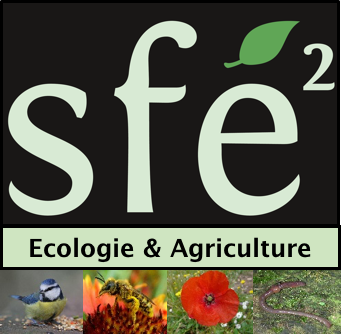The « Ecologie et Agriculture » special interest groupe of the SFE2 is happy to announce the publication of its first article in January 2018,en Janvier 2018, de son premier article, in response to the Call for Review organized in partnerhsip with the BES Special Interest group Agricultural Ecology.
This Chapitre 1 of the special edition « Sustainable Agriculture Reviews – Ecology for Agriculture » of the journal Agronomy for Sutainable Development, and led by Sabrina Gaba, is entitled Ecology for Sustainable and Multifunctional Agriculture (downloadable). It is the product of reflections that happened during the group workshop at the Sfécologie2016 conference in Marseille, followed by many mails between the 23 authors.
Congratulations to the group and to the authors !
Résumé :
The Green Revolution and the introduction of chemical fertilizers, synthetic pesticides and high yield crops had enabled to increase food production in the mid and late 20th. The benefits of this agricultural intensification have however reached their limits since yields are no longer increasing for many crops, negative externalities on the environment and human health are now recognized and economic inequality between farmers have increased. Agroecology has been proposed to secure food supply with fewer or lower negative environmental and social impacts than intensive agriculture. Agroecology principles are based on the recognition that biodiversity in agroecosystems can provide more than only food, fibre and timber. Hence, biodiversity and its associated functions, such as pollination, pest control, and mechanisms that maintain or improve soil fertility, may improve production efficiency and sustainability of agroecosystems. Although appealing, promoting ecological-based agricultural production is not straightforward since agroecosystems are socio-ecosystems with complex interactions between the ecological and social systems that act at different spatial and temporal scales. To be operational, agroecology thus requires understanding the relationships between biodiversity, functions and management, as well as to take into account the links between agriculture, ecology and the society. Here we review current knowledge on (i) the effect of landscape context on biodiversity and ecosystem functions and (ii) trophic and non-trophic interactions in ecological networks in agroecosystems. In particular, many insights have been made these two previous decades on (i) the interacting effects of management and landscape characteristics on biodiversity, (ii) the crucial role of plant diversity in delivering multiple services and (iii) the variety of ecological belowground mechanisms determining soil fertility in interaction with aboveground processes. However, we also pinpointed the absence of consensus on the effects of landscape heterogeneity on biodiversity and the need for a better mechanistic understanding of the effects of landscape andagricultural variables on farmland food webs and related services. We end by proposing new research avenues to fill knowledge gaps and implement agroecological principles within operational management strategies.
Keywords Agroecology ; Ecological intensification ; Ecosystem services ; Eco-evolutionary dynamics ; Biotic interactions ; Landscape heterogeneity ; Socio-ecological systems


Commentaires récents